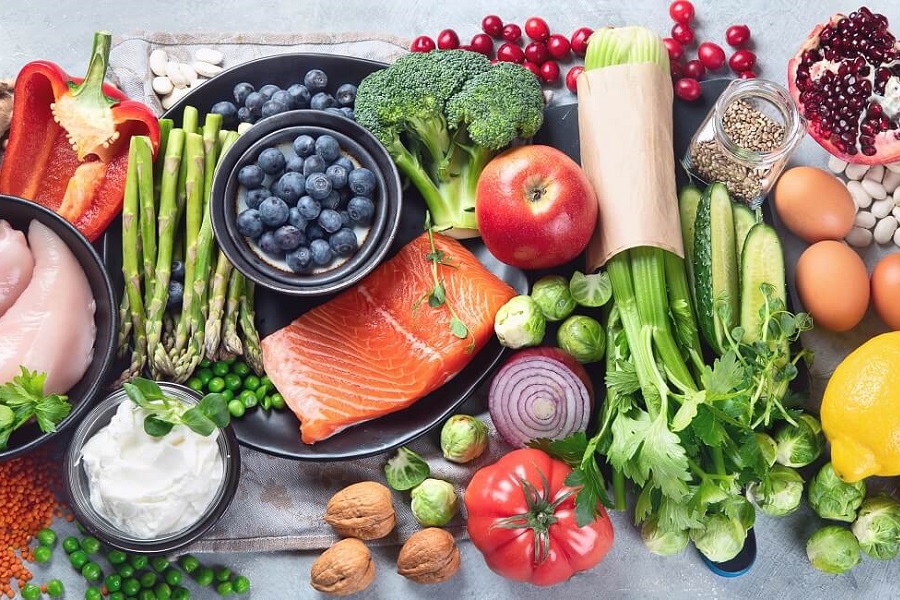11 Dec 2024

Tired Earth
By The Editorial Board

Switching to a healthier diet not only reduces your risk of disease, it also improves the sustainability of our food system. But eating healthier also has indirect consequences that can lead to unexpected economic, social and environmental side effects. Wageningen University & Research have used a global economic model to investigate a change toward the EAT-Lancet diet on a global scale. Their findings are published in the journal Nature Food.
Sticking to this diet will help reduce global demand for food and associated biomass production. Eating fewer calories, especially in richer countries, reduces the environmental impact of our food systems and resource use. But there is a catch. So-called indirect or side effects can actually undermine the direct benefits of a healthier and more sustainable diet.
Economic side effects
How does this work? For a start, you can see that if you need less food, you also need less biomass, which lowers the average prices of biomass and land. A lower land price makes it more attractive to use additional land and expand agricultural area, reducing fertilizer use and associated emissions. However, there is also less need for labor and capital, resulting in lower wages and incomes.
These effects work the other way in sub-Saharan Africa, low-income countries where hunger persists. Here, the shift to the EAT-Lancet diet actually increases the demand for food and biomass. This increases the use of land and hence prices. Instead, more agriculture is being done. Intensification of agriculture has both negative effects, such as more chemical inputs, and positive effects, such as rising wages.
Environmental effects outside the food system
Another effect is visible in the non-food sectors. Here, healthier diets lead to higher greenhouse gas emissions. How does this work? When people, especially in higher-income regions, spend less on food, they spend more on non-food products. This can lead to increased demand and thus production of non-food products.
The additional emissions from non-food production exceed the decrease in biomass emissions from eating less. This effect brings global greenhouse gas emissions in 2030 to the same level as when there were no dietary shifts. Indirect effects in the non-food sector thus cancel out climate progress in agriculture.
Social side effects
Changes in global food demand can have different influences on wages in the agricultural and non-farm sectors. When there is less demand for agricultural products, this leads to lower wages in agriculture compared to other sectors. This is because skills for agriculture do not always match the skills demanded in other sectors. As a result, agricultural workers cannot easily switch to another sector which forces them to stay in agriculture despite lower wages. At the same time, the growth of non-food production encourages higher wages in non-farm sectors. The shift in dietary patterns thus exacerbates existing income inequality between agricultural and non-farm workers in most regions.
Changes in wages have a direct impact on food affordability. In regions with higher incomes, healthy foods (based on a diet derived from the EAT-Lancet nutrition recommendations) become more affordable for people in both agricultural and non-agricultural sectors. Although wages in the agricultural sectors are falling, food prices are falling even more, thus increasing the affordability of healthy food.
In low-income regions where demand for food increases with the EAT -Lancet diet, the impact on affordability is reversed as food prices rise more than wages. In sub-Saharan Africa, you see food becoming less affordable for both agricultural and non-agricultural workers. This is cause for concern because hunger remains high in this region.
Side effects and food waste
Besides the impact on land use and greenhouse gas emissions, the shift to the EAT-Lancet diet also helps reduce food loss and waste. This is because both the volume of food production and trade are reduced. However, it should be noted that consumption patterns in high-income countries still contribute to significant food losses and wastage in middle- and lower-income regions. This not only puts pressure on the local environment, but also makes it difficult to reuse food losses in these poorer regions due to more limited infrastructure and technologies.
On the one hand, reducing food loss and waste means less food and nutrients are lost, which is beneficial. On the other hand, increasing fresh, plant-based food waste can also lead to more pollution. The geographical discrepancy between where food waste is produced and where recycling facilities are located may reduce the expected environmental benefits of reduced food loss and waste due to the EAT-Lancet diet.
While the transition to a healthier and more sustainable diet such as the EAT-Lancet diet offers personal and environmental benefits, it is important to consider the potential negative economic, social and environmental impacts. Modeling studies like this one help take this complexity into account when designing policy interventions. Combining different interventions, inside and outside the agricultural sector, is needed for integrated solutions that bring us closer to a more sustainable future where pursuit of health, equity and care for the environment are mutually reinforcing.
Source : phys.org
Comment